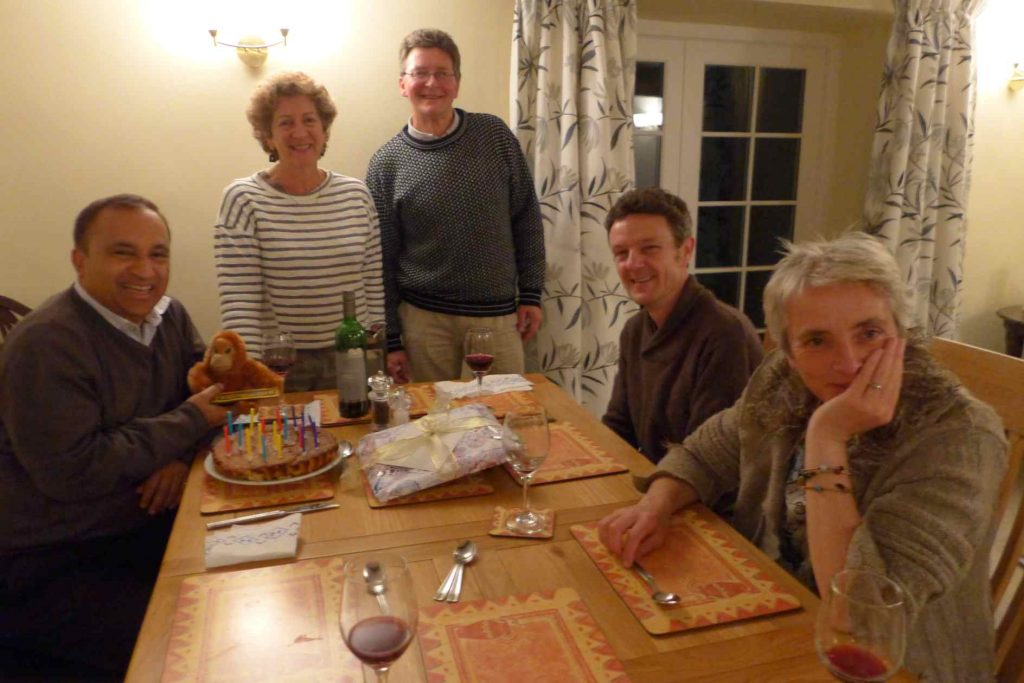Working virtually

Gopal, Brenda, Bruce, Bill and Orla around Gopal’s birthday cake
We are now working ‘virtually’ so much that it seems worthwhile to step back for a moment and consider what we are losing and gaining in this, and what we can do to improve it.
Individually, as a collective and with our clients, we are working across a huge variety of platforms and interfaces. We use Basecamp to work and communicate between ourselves, and sometimes, on bigger projects, with clients. We keep our resources on Dropbox, and when we’re working on live documents we use Google Docs or Microsoft Office Online. Of course, we still use email occasionally (though Basecamp has helped us to reduce the traffic enormously). We use text messages when something’s urgent, and WhatsApp for the human, social “stuff”! We conduct our monthly check-ins on Skype or FreeConferenceCall.Com, but we are planning to make much more use of Adobe Connect to conduct virtual workshops between ourselves – we already do so with clients. Several of us are participating in at least one, if not two online courses (the “Transforming Business, Society and Self” “MOOC” hosted by MIT and the Presencing Institute, and Virtual Facilitation Online (one of us is a participant, and another is a trainer on this course). Many of us are working in teams where we’ve never actually met, in the “real world”, those with whom we are working.
We’re definitely working faster and leaner. But we’re not ‘geeks’ (at least, most of us aren’t!). At our retreat, the extent to which our work is predicated on strong relationships, within the collective, and with our clients and peers, was very visible. So, in this 21st century virtual environment, we find ourselves needing to think about how to keep humanity, empathy, creativity, connection – and perhaps even, occasionally, fun – at the heart of what we do within Framework and with our clients and networks. Some simple ways have emerged, without us necessarily planning them. For instance, creating a group on WhatsApp means that we whizz around photos of holidays and gardens and loved ones, or the view from our windows in the various corners of the globe. At least one of us now picks up the phone immediately to respond to an email or text or Basecamp thread: if he doesn’t get hold of us, he’ll follow up electronically, but it’s surprising, to me at least, how easy it is to fall out of the habit of just speaking directly (I have resolved to speak more often to clients on the phone). Participating as students in online courses is a way of helping us think about other ways of building and maintaining relationships in virtual environments – not just to ‘create engagement’ in training or workshops, but to deliberately consider how our ways of working allow for relationships to be nurtured, which is one of the key ways of creating change

